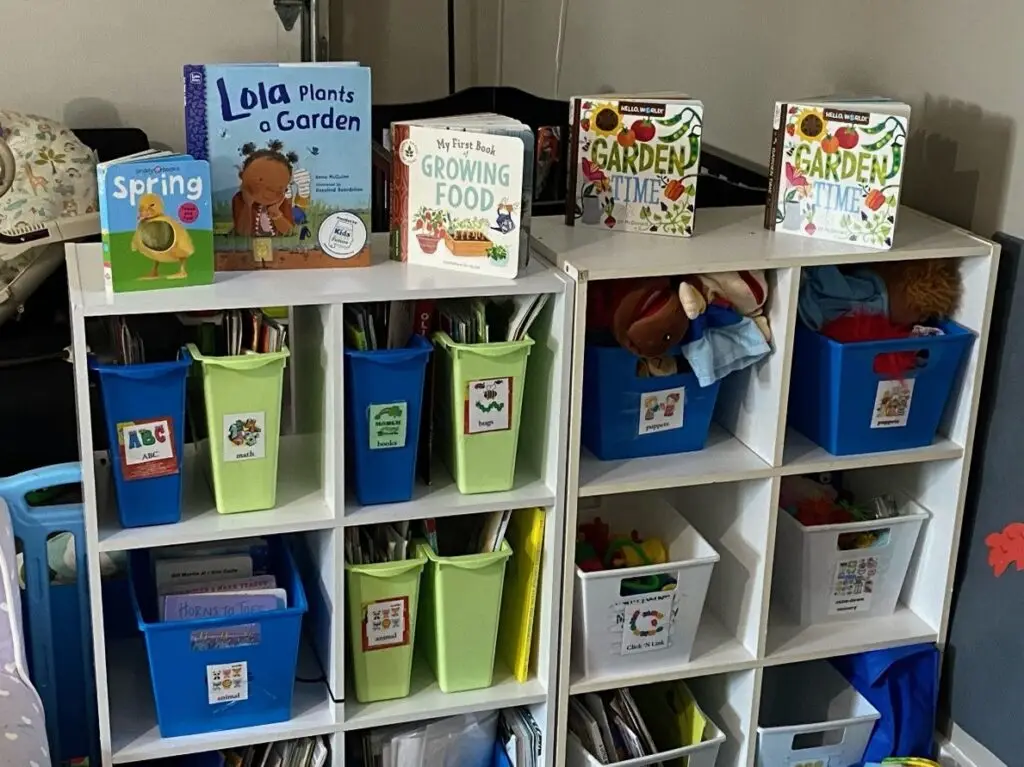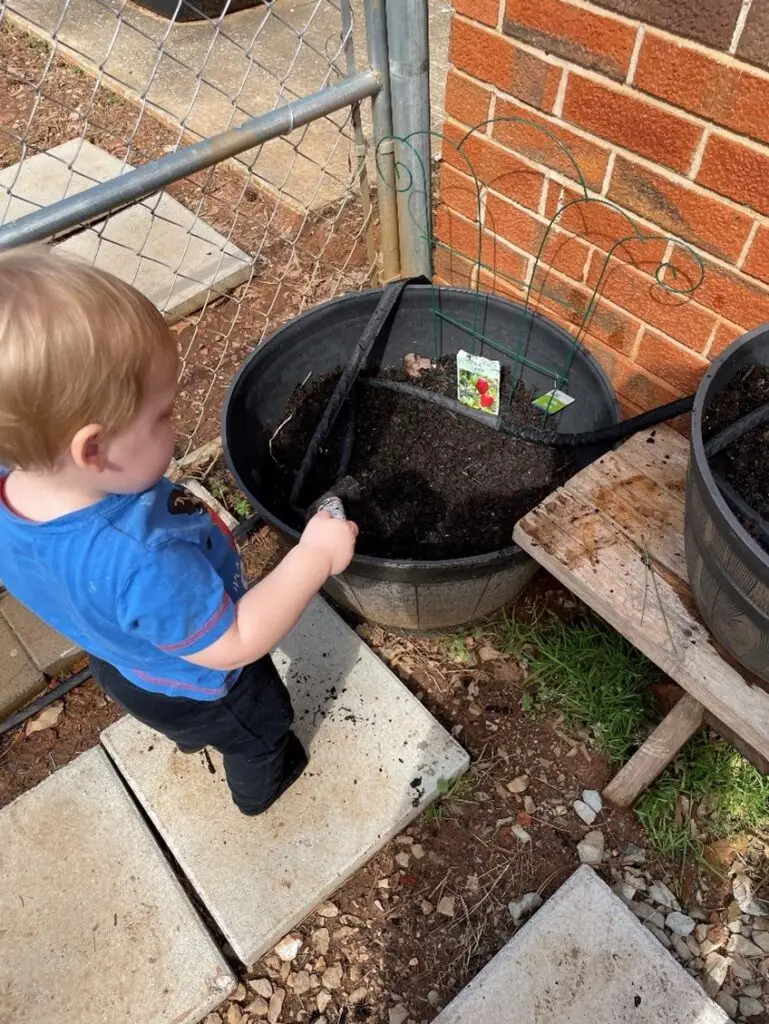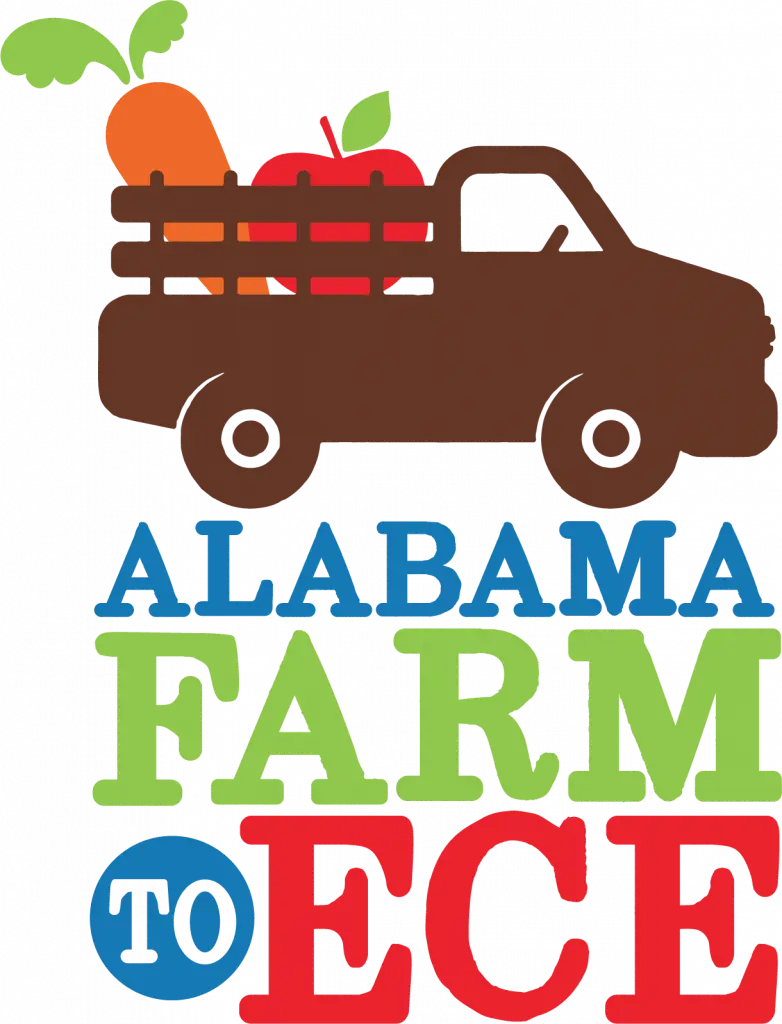This article has been written by Christina LeVert, Director of AL Healthy Kids, Healthy Future, a partner of the Alabama Farm to ECE Coalition.
Christina LeVert serves as the Alabama Healthy Kids, Healthy Future Director with the Alabama Partnership for Children. She has over 10 years of experience as a Registered Dietitian. She received her Bachelor of Science and Master of Science in Nutrition from The University of Alabama.
Her experiences in nutrition and wellness led her to APC where she coordinates efforts to embed child health and wellness strategies and best practices into existing state systems and provide training opportunities and technical assistance to child care programs. Christina also has three children (ages 7, 5, and 3 years old) that keep her busy!
Bringing Farm to ECE into a Family Child Care Home
Farm to Early Care and Education does not have to look the same for all child care programs. Some programs might take a trip to a local farm, some might read books about farming or growing fruit and vegetables, and some might plant seeds in recycled containers to watch them grow on the windowsill. The possibilities for incorporating Farm to ECE in the classroom are endless.

Laura’s Tiny Toes, a family home provider in North Alabama, has been incorporating Farm to ECE activities into her classroom for 3 years now. She first participated in a Farm to ECE Learning Collaborative in 2020. Since then, she has applied for sustainability funds every year and continues to grow her Farm to ECE efforts. Laura adds Farm to ECE into her program in many ways. There is an outdoor garden that the kids help plant and maintain. Laura includes farm and nutrition education and reads gardening and farming books to the children in her care. “They love the books!’ Laura says. All of these activities have pushed her to include more fresh fruits in their menus. She also commented that “We already did fresh vegetables but I can say since we started Farm to ECE we have much less trash and food waste.”
My Visit to Tiny Toe’s Home Daycare
I had the pleasure of getting to visit Laura’s on seed planting day. Over the course of the morning carrots, lettuce, corn, tomatoes, and cucumbers were planted. Laura and the children plan to add watermelon and cantaloupe seeds in a few weeks. You may be expecting me to say that all of the children lined up and carefully tended the soil and planted seeds in an orderly fashion, but that’s not how toddlers and preschool-aged children operate. Instead, I saw children outside happily getting their hands dirty. I saw children lose interest in planting seeds and run through the outdoor play area enjoying the beautiful day. Every time one child would wander away from the planting area, another would return. Each child had a chance to dig in the soil, plant seeds, and help water the garden. This is why Farm to ECE is so powerful for children. From sensory exploration to learning new words, exploring nature, and stretching their little legs, the benefits are never-ending. We also can’t forget the empowerment children can get from growing something themselves combined with their excitement to taste the foods they helped grow. This is how we help children grow into adventurous eaters.

One of the most exciting things about Laura’s garden is the location. The way the outdoor space is set up, parents and caregivers walk their children through the garden every day when they drop off and pick up their children. This means the children not only get to see the growth of their garden nearly every day but so do their families. Children have the opportunity to show their families what they have helped grow almost every day.
This is just one example of the many wonderful child care providers across Alabama that incorporate Farm to ECE into their programs.

